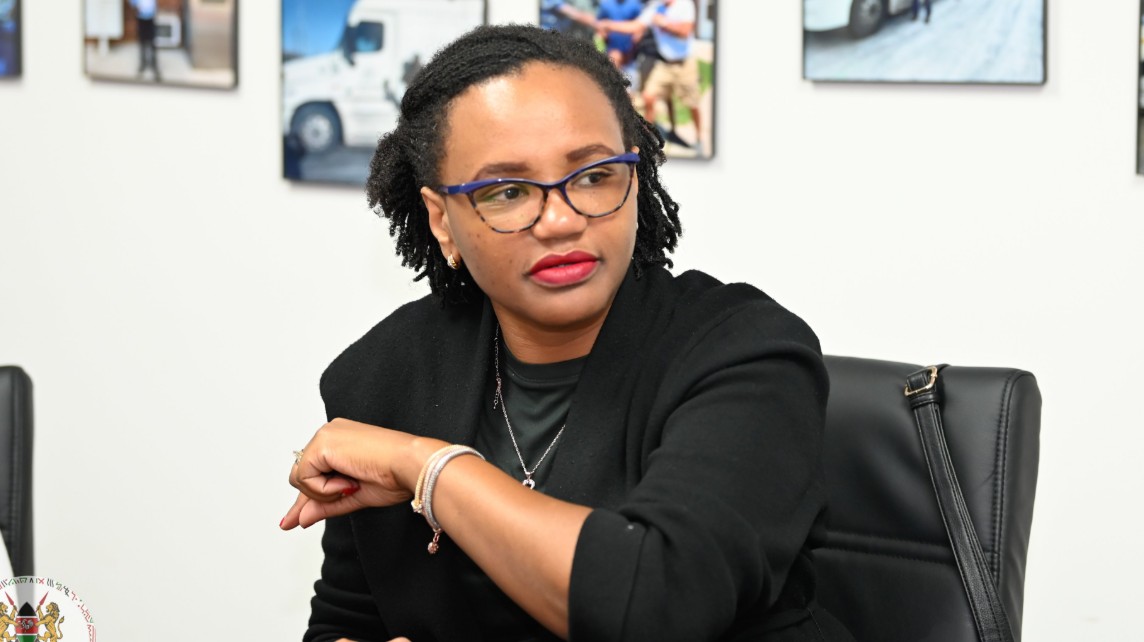Kenyan single mothers in Saudi Arabia urged to register children, collect birth certificates

The PS called on all mothers in Saudi Arabia with undocumented children to reach out to the Embassy in Riyadh, the Consulate in Jeddah or the State Department in Nairobi for assistance.
The government has renewed calls for Kenyan single mothers in Saudi Arabia to use the available support channels to register their children and collect birth certificates already processed, as it moves to address the long-running challenge of undocumented families in the Kingdom.
The State Department for Diaspora Affairs said many mothers have not taken up the help provided, even though the issue has been a key humanitarian concern for the country.
More To Read
- Gulf region paves the way to become digital data hub
- Embassy begins emergency travel certificate registration for stranded Kenyans in Saudi Arabia
- Senators summon Mudavadi over harassment, detention and deaths of Kenyans abroad
- Chinese national sacked after being filmed assaulting Kenyan worker
- Saudi Arabia to pay Kenyan workers minimum Sh34,455 from February 2026 amid labour reforms
- Shocking New York Times report exposes Kenyan mothers, children suffering in Saudi Arabia
In a detailed statement, Principal Secretary Roseline Njogu explained that the Government has been handling the matter through a series of interventions designed to protect both the mothers and the children.
She said Kenyan law clearly sets out how births abroad should be registered, placing responsibility on parents while allowing Kenyan Missions Abroad to receive notifications and help with documentation.
Njogu noted that the main difficulties arise from the legal environment in Saudi Arabia, where pre-marital relationships are treated as an offence that can lead to arrest or deportation.
Because Saudi authorities require a marriage certificate before issuing a birth certificate, many women who conceive outside marriage fear going to the hospital and instead deliver at home with untrained helpers.
She reminded the public that under Kenyan law, “there is no distinction in the treatment of births based on the mother’s marital status,” and that children’s rights remain the same regardless of their parents’ relationship.
In response to the hardship faced by Kenyan families, the Government rolled out several measures, including the 2023 DNA sampling exercise under the Mobile Consular Services known as the Mwanamberi Project.
The initiative was meant to help confirm parentage so that children could be processed for birth certificates and citizenship.
Despite wide outreach, attendance was low. Out of those who came forward, 707 DNA samples were collected, including 388 from children. Only 113 then applied for birth certificates, and 110 were completed.
“The Ministry of Foreign and Diaspora Affairs contacted all 110 parents via messages, direct calls, and community circulars to collect the birth certificates from our Riyadh Embassy,” Njogu said, adding that only a third have collected them. Others who submitted DNA samples were asked to finish their applications, but few have done so.
Njogu said the Embassy in Riyadh has also built a strong cooperation system with Saudi authorities through a multi-agency working group that includes the passports directorate, the labour ministry, the interior ministry and Saudi foreign affairs.
This team created a lawful process to help affected Kenyans return home, leading to the safe repatriation of 59 mothers and 73 children.
Kenya also reached an agreement with Saudi authorities for an amnesty allowing undocumented Kenyans to regularise their status or leave without facing penalties, but the uptake was low.
“Regrettably, only a handful of Kenyans utilised this program,” she said.
The PS called on all mothers in Saudi Arabia with undocumented children to reach out to the Embassy in Riyadh, the Consulate in Jeddah or the State Department in Nairobi for assistance.
She urged those whose documents are ready to pick them up without delay.
The PS reminded parents abroad of their duty to register the births of their children and encouraged Kenyans in the diaspora to respect local laws while ensuring they register with the Ministry of Foreign and Diaspora Affairs through the online portal. She stressed the importance of contacting the nearest Kenyan mission in case of difficulty or emergencies.
Njogu said the Government remains committed to protecting the welfare of all citizens abroad, noting that the creation of the State Department for Diaspora Affairs reflects this responsibility.
Top Stories Today















































